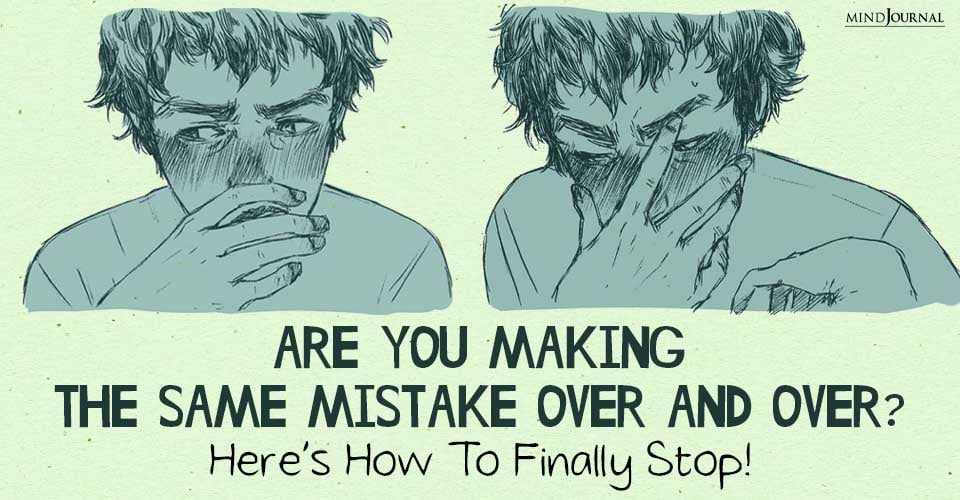Imposter syndrome can be a tough burden to carry, especially when it stems from adverse childhood experiences. It makes you doubt yourself and your accomplishments and makes you feel like a fraud. Explore the signs of imposter syndrome, it’s link to adverse childhood experiences and how to deal with it.
KEY POINTS
- Most people relate to at least some aspects of the imposter syndrome.
- Adverse childhood experiences often set the stage for the syndrome.
- The psychological dynamics of the syndrome suggest ways to drop the mask and live authentically.
This post is part of a series on adverse childhood experiences. Read the other parts here.
Do you ever feel like an imposter? Feigning confidence when you don’t feel you’re up to the task? Fearing that others will discover your weakness? If so, you’re not alone. Most people feel this way at times and to varying degrees.
However, imposter syndrome describes a condition in which people feel such feelings deeply and lastingly. Whether we have these feelings occasionally or chronically, the syndrome teaches us many lessons.
Here are its characteristics. See how many apply to you.
Related: What is Imposter Syndrome?
6 Characteristics Of Imposter Syndrome
1. Negative identity and view of self
- I’m a fake, a fraud, or a poser.
- Down deep, I’m not worth very much.
2. Self-doubt
- I don’t have what it takes; I doubt that I’m up to the task.
- I doubt my strengths and sometimes wonder if I even have any.
- I’ve succeeded in the past, but I don’t know if I can keep it up.
- My self-doubts persist even after I succeed.
- I’m not good enough.
3. Comparisons and discomfort around others
- I compare myself to others and usually come up short.
- I feel uncomfortable in the presence of people who seem more successful than me (e.g., more accomplished, confident, powerful, virtuous, or better looking).
- I feel like I don’t belong in the company of successful people.
4. Fears
- I worry that others are judging me.
- I fear being exposed as a fraud or being found out as a phony.
- I fear failure, coming up short, or looking bad.
- I fear losing control.
- I still feel like a scared little child.
5. False front
- I wear a mask to hide my painful flaws and insecurities from others.
- I effect a façade of competence, pretending to be confident, in control, powerful, important, or busy.
- To hide my flawed self, I use my best strengths, such as my personality, appearance, position, status symbols, education, work ethic, or wit.
- My mask often impresses people, but that doesn’t really allay my fears.
6. Overcompensating
- I work overtime, harder than most, to ensure that my work is beyond reproach.
- I’m driven to outperform my peers.
- I use stern self-criticism to improve myself.
- I set practically unattainable, perfectionistic goals for myself.
Note that driven overachieving is an attempt to defend against the imposter’s fears and self-doubts. Sadly, outward success, achievements, and the approval of others don’t usually quell the imposter’s feeling of not being good enough.
Rather, the relentless, exhausting struggle to appear good enough increases the risk for depression, anxiety, and burnout.

The Root Cause
At the root of the syndrome is damaged self-esteem, which manifests as self-doubt, fear of being exposed, comparisons to others, and so forth.
Consistent with low self esteem, imposters focus on what is lacking, rather than their strengths and potential. In other words, they don’t see themselves realistically and with appreciation.
Adverse childhood experiences (ACEs), such as abuse, neglect, or turmoil in the home, lead to low self esteem and shame, often persuading the overwhelmed child to feel worthless and powerless.
The constantly criticized child concludes, “I’m not good enough.” So the protective mask worn in adulthood makes sense, as do the antidotes.
Related: 7 Signs of Impostor Syndrome
Solutions
1. Acknowledge weaknesses and celebrate your strengths.
Acknowledging present limitations is healthy humility. Identifying, appreciating, and living your strengths is resilience.
2. Drop the mask and be yourself.
People tend to appreciate and be more at ease with individuals who are real—comfortably admitting their imperfections while striving to improve.
3. Strive for excellence, not perfection.
Give yourself credit for doing a good job, without letting perfectionism steal the satisfaction of doing your best.
Striving for high standards with self-compassion and acceptance favors sound mental health. Fear-driven perfectionism does not. To accept that you’re not perfect is liberating.
4. Check your self-talk.
Instead of telling yourself, “I’m inadequate” (meaning I’m inadequate always and in every way), tell yourself, “I’m unskilled. With time and effort, my skills will likely improve.”
Instead of “I must be perfect to win approval,” try “It’s OK to be imperfect. I have as much right to try to improve as anyone.”
5. Face down your fears.
Don’t run from them. Fighting them and covering them with a mask is ineffective. Try this activity: Find some uninterrupted time to quietly sit with your fears. Without judging, notice where you sense them in your body, such as the pit of your stomach.
Penetrate the darkness of those fears. Keep going deeper and deeper into your fears, until you discover something deeper, a place of peace and strength. Breathe compassion into that place. Take your time.
6. See yourself clearly.
Your core self—sometimes called your true happy nature—possesses all the embryonic strengths that all other humans share, such as the ability to reason, solve problems, love, and so forth.
Each strength is imperfect (i.e., incompletely developed) but infinitely perfectible. That makes you, in one sense, like all other people. What distinguishes you from others is your unique blend of strengths—some more developed, some less.
Appreciate your core strengths—rough edges notwithstanding. Relish your capacities to contribute in the service of good.
7. Separate self-worth from externals.
Externals include performance and the approval of others. Worth as a person is a given. It is unconditional and equal to others, even though others might be more accomplished.
Being secure in your worth reduces worry and frees you to do all you can do at any given time—your imperfect best effort.
Related: 6 Hacks For Battling Imposter Syndrome
8. Don’t look to others to validate your worth.
Healthy self-esteem is an inside job. Valuing yourself is a choice that is independent of the way others think of you. Be in touch with your true identity: worthwhile and capable of growing.
Being aware of your unique blend of strengths, go to others to offer your strengths—your genuine friendship, calm, logic, warmth, kindness, dependability, skills, humor, and so on.
Don’t worry about a perfect outcome. Focus on what you can do, then enjoy the process. Your present shortcomings do not reflect who you are at the core.
9. Your productivity does not give you worth.
Rather, it is an expression of your worth.
10. Be kind with your shortcomings.
Self-compassion is more helpful and motivating than self-doubt and harsh self-criticism.
11. Focus on your strengths, not deficiencies.
Allow that you are learning and growing your strengths. Focus on how you can make a difference for good, how you can contribute and elevate yourself and others.
12. Normalize inadequacy and feeling not up to the task at times.
Most people do, but not everyone is bludgeoned by it.
13. Don’t compare.
Someone will always be more skilled in any area. That doesn’t make you less worthwhile as a person, just less skilled. Remember, only you have your unique mix of strengths, which means you can contribute in unique ways.
14. Expect to make mistakes.
Expect mistakes especially as you begin new tasks.
You are not an imposter if you are wise and humble enough to recognize your present limitations while trying to improve yourself.
Related: 7 Imposter Syndrome Myths You Should Know About
We imperfect humans can rest secure, as is often said, if we speak from the heart, do our honest best, and accept the outcome. You are good enough.
References:
For more, see my book, The Adverse Childhood Experiences Recovery Workbook: Heal the Hidden Wounds from Childhood Affecting Your Adult Mental and Physical Health.
Written By Glenn R. Schiraldi
Originally Appeared On Psychology Today










Leave a Reply